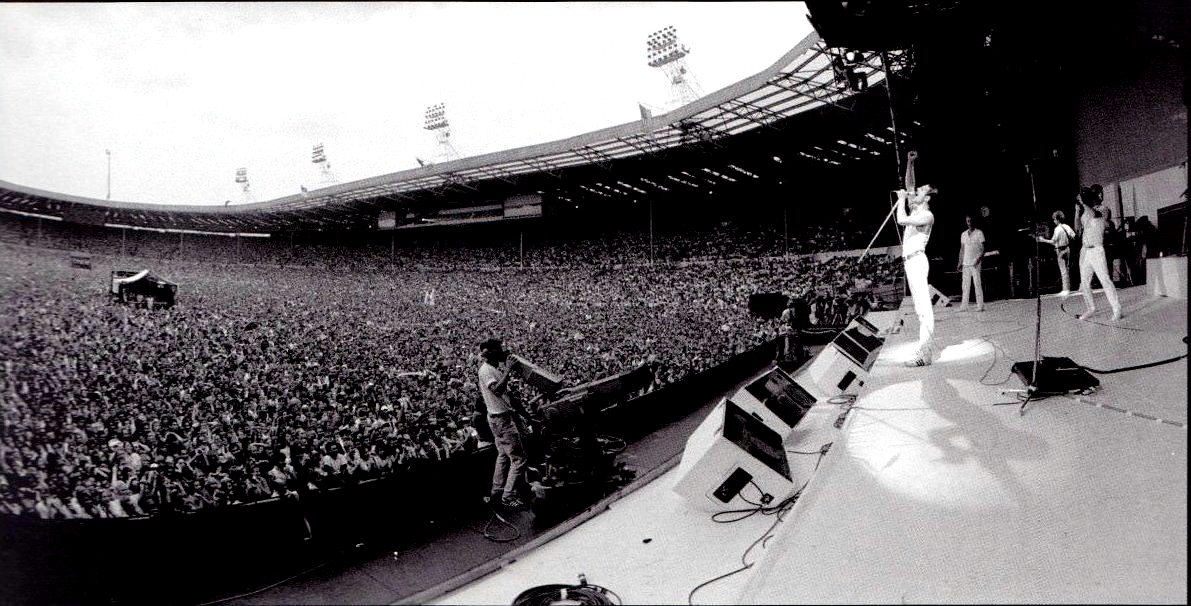Once the home of childish gifs and largely good-natured banter, Twitter has come to resemble the final stages of an argument between several drunks just before the chairs are pushed back.
There have been fewer more sign-o’-the-times illustrations of this than the recent spat between former NME man Danny Baker and Little Britain and Rock Profiles star Matt Lucas. Baker’s comment, like so many things on social media which become incendiary for no real reason, questioned the justification for the making of Queen biopic Bohemian Rhapsody, asking whether if Bryan Ferry or Robert Plant had died a film would’ve been made about them.
![Screenshot_2019-02-20 Danny Baker on Twitter How Queen got a film made about them is still astounding to me If Bryan Ferry [...]](https://arcticreviews.co.uk/wp-content/uploads/2019/03/screenshot_2019-02-20-danny-baker-on-twitter-how-queen-got-a-film-made-about-them-is-still-astounding-to-me-if-bryan-ferry-....png?w=1140)
So far, so pineapple on pizza level provocative. But Baker’s argument whether intentional or not had nuance well beyond its 280-character limit, one which cuts to the heart of cultural discourse in Britain.
Recently for anyone who doesn’t know we have had a minor electoral shemozzle here, the ramifications of which are yet to be fully understood. But the most telling moment in the build-up was the egregious pipsqueak Michael Gove smugly boasting that the British “Have had enough of experts”. Gove has the insight of a colostomy bag, so his straight arrow was almost certainly accidental, but its zeitgeist mugging felt real enough. For the many who agreed with him, the obvious relatable subtext to Baker’s tweet was: “I’m cooler than you. And you know it.”
Next, a confession. I’ve never seen Bohemian Rhapsody, other than the clip where someone has placed actual footage of Queen’s Live Aid show next to the film’s reconstruction. In it Rami Malek and the poor dead creature glued onto his lip fail entirely to pull off Freddie Mercury’s fin-de-siècle performance, his band mates schooled to initially look frightened to death when back in the day none of the well rehearsed troupers displayed an ounce of nerve during an iconic set.
I wouldn’t go and see Bohemian Rhapsody though because frankly, I hated Queen. Although my adolescent record buying didn’t begin until Gary Numan’s Bowie/Kraftwerk mash-up Cars, I’d spent the seventies glued to Top of The Pops and listening to Sunday’s Top 40 since I was knee-high to glam rockers Mud and Slade. Confused by the video for Bohemian Rhapsody and even less impressed with the song’s barbershop quartet histrionics, I began to dread their appearances on both, a torture frequently applied, courtesy of a string of top 20 singles.
Queen were big; they sold records by the ton and with success came excess – and jealousy. Curated by Mercury’s gift for the flamboyant, their social events were rock star hedonism squared – hell, quadrupled; the party for the launch of their seventh album Jazz featured coke by the yard, a vaginally smoking stripper and hired hands giving oral sex in the venue’s bathrooms.
Not that this dented their bank balances too much. Each member at one point was reportedly earning more than £700,000 a year – and that was in 1979. Responding to his detractors Mercury once quipped provocatively: “Darling, I’m simply dripping with money! It may be vulgar, but it’s wonderful.”
Ostentation was central to the singer’s schtick, but Queen’s decision to play for the apartheid regime’s bourgeoise in Sun City came at a cost. Their subsequent response to a now-weaponised cabal of (sic) “leftie do gooders” – hey, we’re not a political band – had an empty ring to it, one which made their decision to join Bob Geldof’s musical telethon seem an admission of guilt and shot at redemption rolled into one.
Mercury himself was having none of that, publicly anyway. But whatever their motivation, even through the gritted teeth of 1985 and again in 2019, his turn is unquestionably magnificent. The singer arrives on stage without bluster, dressed simply as the common man, but with dusk falling he transforms, an avatar with a ringmaster’s sense of timing and a use for every theatrical trick learned from a life of wooing punters from Taunton to Tokyo.
The ripple effect was gigantic, not just for the band’s sales, which beforehand particularly in America were in decline, but for music in general. Live Aid ushered in a new era, one where intimacy and nuance were replaced with a brash hollowness, everything seemingly dissolved into high concepts for mass consumption. In its testosterone wake swam the ever-ambitious Bono, Jon Bon Jovi and a host of other pecs and cheekbones singing mostly about cars and girls.
Back in 1976 Queen and their contemporaries were in the supposed crosshairs of a revolution, dinosaurs too dumb to know they were already extinct. But much to no-one’s surprise they weren’t killed off by the Youthquakes of punk, post-punk, Two-Tone, the New Romantics or anything else – instead becoming ever more bulletproof in the wider public’s eyes, no matter how many Smiths records I bought.
This was probably Baker’s point; even with the untimely death of their lead singer nearly thirty years ago, the Queen brand has continued to profitably harness an enormous popular appeal that the intelligentsia just don’t get. And with this legacy impervious to fashion or criticism, the film made in their name should gross a staggering billion dollars worldwide by the time it’s done. Here then is an audience saying amongst other things “Have that, lovers of Throbbing Gristle.”
![Screenshot_2019-02-20 🏳️🌈🇪🇺 Matt Lucas on Twitter Regardless of anyones views on the quality of the band or the movie,[...]](https://arcticreviews.co.uk/wp-content/uploads/2019/03/screenshot_2019-02-20-f09f8fb3efb88fe2808df09f8c88f09f87aaf09f87ba-matt-lucas-on-twitter-regardless-of-anyones-views-on-the-quality-of-the-band-or-the-movie....png?w=1140)
It was a movie made because as Paul Weller said, the public wants what the public gets. Lucas’ response to Baker ran on similar lines, employing the sort of demand and supply logic which is fine in principle but not always in practice; in Britain the sociopathic huckstering of Nigel Farage is popular, as is the millennially lobotomised Geordie Shore. Neither deserve to be committed to celluloid for posterity.
I still hate Queen. But I admit just the process of writing this has taught me that it wasn’t Freddie, Brian, Roger and the other one’s fault they ended up being projected onto by people who always have their steak well done. They’re still the champions. But that doesn’t mean the rest of us have to like it.
Picture: Freddie Mercury performing at Live Aid, reproduced from #MusicMoments.


Great post Andy. It takes courage to admit publicly that you hated Queen. While I did like a few of their songs (Killer Queen, You’re My Best Friend, Bohemian Rhapsody & Crazy Little Thing Called Love), I was never a big fan. I eventually grew tired of them and their grossly overplayed anthemic blockbusters We Are the Champions, We Will Rock You and Another One Bites the Dust.
LikeLike